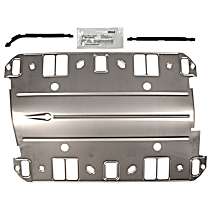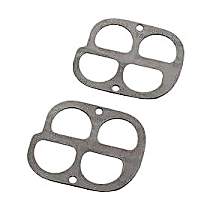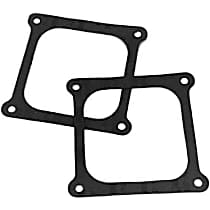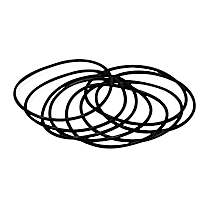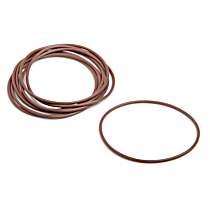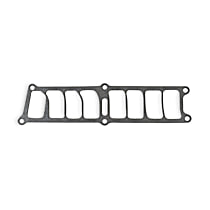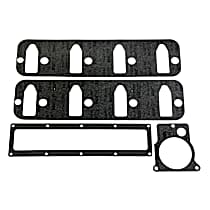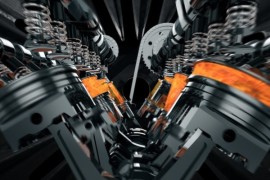{
"lazyNodes": false,
"abFitnotesFlag": false,
"abCrawlReviews": false,
"productOptionsCookie": false,
"orderDelayFlag": false,
"skipSessionCookie": false,
"covidMessage": false,
"fullTitleCookie": false,
"nrLoggerCookie": false,
"checkoutReviewCookie": false,
"productOptionSeqCookie": false,
"maintenanceFlag": false,
"bufferETACookie": false,
"multiShippingDiscountFlag": false,
"newFitmentFlag": false,
"surveyOptInFlag": false,
"crossSellFlag": false,
"skuMappingFlag": false,
"paySplitCookie": false,
"callDisableFlag": false,
"zipPaymentFlag": "u",
"hassleFreeReturn": false,
"lifetimeReplacement": false,
"cpn_off": false
}Jeep CJ7 Intake Manifold Gaskets
Shop Catalog
![]() WARNING: This product can expose you to chemical which is known to the State of California to cause cancer and birth defects or other reproductive harm. For more information go to www.P65Warnings.ca.gov.
WARNING: This product can expose you to chemical which is known to the State of California to cause cancer and birth defects or other reproductive harm. For more information go to www.P65Warnings.ca.gov.
![]() WARNING: This product can expose you to chemical which is known to the State of California to cause cancer and birth defects or other reproductive harm. For more information go to www.P65Warnings.ca.gov.
WARNING: This product can expose you to chemical which is known to the State of California to cause cancer and birth defects or other reproductive harm. For more information go to www.P65Warnings.ca.gov.
![]() WARNING: This product can expose you to chemical which is known to the State of California to cause cancer and birth defects or other reproductive harm. For more information go to www.P65Warnings.ca.gov.
WARNING: This product can expose you to chemical which is known to the State of California to cause cancer and birth defects or other reproductive harm. For more information go to www.P65Warnings.ca.gov.
![]() WARNING: This product can expose you to chemical which is known to the State of California to cause cancer and birth defects or other reproductive harm. For more information go to www.P65Warnings.ca.gov.
WARNING: This product can expose you to chemical which is known to the State of California to cause cancer and birth defects or other reproductive harm. For more information go to www.P65Warnings.ca.gov.
![]() WARNING: This product can expose you to chemical which is known to the State of California to cause cancer and birth defects or other reproductive harm. For more information go to www.P65Warnings.ca.gov.
WARNING: This product can expose you to chemical which is known to the State of California to cause cancer and birth defects or other reproductive harm. For more information go to www.P65Warnings.ca.gov.
![]() WARNING: This product can expose you to chemical which is known to the State of California to cause cancer and birth defects or other reproductive harm. For more information go to www.P65Warnings.ca.gov.
WARNING: This product can expose you to chemical which is known to the State of California to cause cancer and birth defects or other reproductive harm. For more information go to www.P65Warnings.ca.gov.
![]() WARNING: This product can expose you to chemical which is known to the State of California to cause cancer and birth defects or other reproductive harm. For more information go to www.P65Warnings.ca.gov.
WARNING: This product can expose you to chemical which is known to the State of California to cause cancer and birth defects or other reproductive harm. For more information go to www.P65Warnings.ca.gov.
![]() WARNING: This product can expose you to chemical which is known to the State of California to cause cancer and birth defects or other reproductive harm. For more information go to www.P65Warnings.ca.gov.
WARNING: This product can expose you to chemical which is known to the State of California to cause cancer and birth defects or other reproductive harm. For more information go to www.P65Warnings.ca.gov.
![]() WARNING: This product can expose you to chemical which is known to the State of California to cause cancer and birth defects or other reproductive harm. For more information go to www.P65Warnings.ca.gov.
WARNING: This product can expose you to chemical which is known to the State of California to cause cancer and birth defects or other reproductive harm. For more information go to www.P65Warnings.ca.gov.
![]() WARNING: This product can expose you to chemical which is known to the State of California to cause cancer and birth defects or other reproductive harm. For more information go to www.P65Warnings.ca.gov.
WARNING: This product can expose you to chemical which is known to the State of California to cause cancer and birth defects or other reproductive harm. For more information go to www.P65Warnings.ca.gov.
![]() WARNING: This product can expose you to chemical which is known to the State of California to cause cancer and birth defects or other reproductive harm. For more information go to www.P65Warnings.ca.gov.
WARNING: This product can expose you to chemical which is known to the State of California to cause cancer and birth defects or other reproductive harm. For more information go to www.P65Warnings.ca.gov.
![]() WARNING: This product can expose you to chemical which is known to the State of California to cause cancer and birth defects or other reproductive harm. For more information go to www.P65Warnings.ca.gov.
WARNING: This product can expose you to chemical which is known to the State of California to cause cancer and birth defects or other reproductive harm. For more information go to www.P65Warnings.ca.gov.
![]() WARNING: This product can expose you to chemical which is known to the State of California to cause cancer and birth defects or other reproductive harm. For more information go to www.P65Warnings.ca.gov.
WARNING: This product can expose you to chemical which is known to the State of California to cause cancer and birth defects or other reproductive harm. For more information go to www.P65Warnings.ca.gov.
Popular Products
Customer Guides
Signs of a Damaged Jeep CJ7 Intake Manifold Gasket
The intake manifold gasket is a small component that plays a big part in ensuring optimum performance from your Jeep's engine. As the intake manifold gasket continues to be subjected to lots of pressure, it can eventually cause dangerous leaks. Here are some signs of a leaking Jeep CJ7 intake manifold gasket:
Overheating
An overheated engine is often caused by low coolant level. If you keep on having to top up your coolant, there is a chance that a damaged intake manifold gasket is causing your coolant to leak out. Coolant leaks don't only increase your engine's risk of overheating. Over time, your leaking coolant might mix with your engine oil and lead to the complete failure of your engine.
Check beneath your vehicle or around the intake manifold gasket for puddles of coolant. Don't forget to check your engine oil as well for signs of coolant contamination. Use an oil dipstick to examine the state of your engine oil. If it has a milky consistency, then your intake manifold gasket has caused an internal leaking problem.
Decreased fuel mileage and increased emissions
Just like most exhaust system problems, a leaking intake manifold gasket can also result to poor fuel economy and increased emissions. Since the intake manifold gasket plays an important role in maintaining the perfect air-fuel mixture for your engine, any damage on this particular gasket can also affect the mixture. If you are certain that your exhaust system is in perfect condition but you're still getting less miles per gallon, then you might have to check your intake manifold gasket for leaks.
Odd noises
A whistling noise from the intake manifold can be a sign of a cracked or deformed intake manifold gasket. If the damage becomes bigger, the whistling noise might turn into a deeper, gulping noise as the intake manifold takes in more outside air into its system.
Poor engine performance
As your intake manifold gasket fails, your engine performance also suffers. When you start experiencing a rough idle, stalling issues, and loss of high-speed power, then you better check on your intake manifold gasket.
Ensuring that your intake manifold delivers the best air-fuel mixture needed by your engine is made possible with the help of your intake manifold gasket. However, being subjected to constant heat and pressure makes your intake manifold gasket lose its functionality over time. To extend the life of your intake manifold gasket, follow these helpful tips:
Inspect your intake manifold gasket for cracks and corrosion.
A cracked and rusted intake manifold gasket can create gaps between the intake manifold and the gasket itself. If these gaps become big enough, your coolant and engine oil might mix and cause your engine to fail. To avoid leaks caused by a physically damaged intake manifold gasket, make sure that you inspect the gasket every so often for cracks and rust and replace the gasket as needed.
Be on the lookout when it comes to your coolant.
Constantly low coolant levels and puddles of coolant under your Jeep or around your intake manifold can also point to a worn-out intake manifold gasket, so make sure that you are aware of any coolant leaks in your system. Always check the level of coolant in your radiator and coolant reservoir and make sure that you're not topping up your coolant too frequently.
Torque the bolts on your intake manifold gasket to spec.
Two things can happen if you don't torque down your intake manifold gasket: it might either be fitted too loosely and result to a coolant leak or vacuum leak, or fitted too tightly and be pinched or deformed. Either way, your intake manifold gasket won't last long if you don't follow your Jeep's torque specifications for the bolts on your gasket.
When replacing your intake manifold gasket, make sure that the new one is tightly sealed.
Aside from torquing your intake manifold gasket properly, it is also advisable to put a very small amount of silicone gasket sealant on your gasket for added measure. A small bead of silicone sealant that is evenly spread on the intake manifold gasket's water ports can go a long way.




